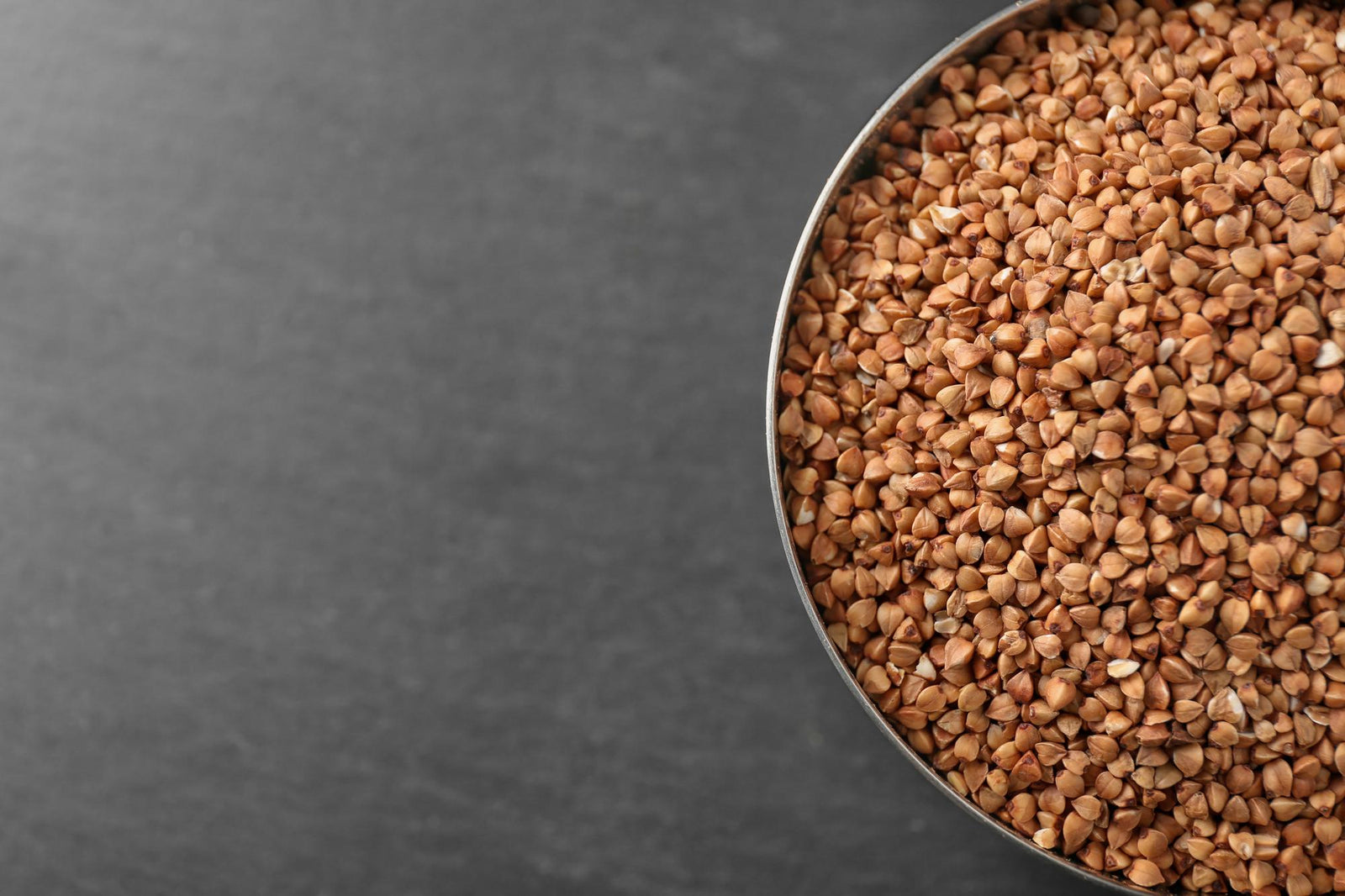
September 27, 2023 5 min read
In recent times, gluten-free diets have become all the rage. Many folks are embracing gluten-free foods, either as a personal preference or due to health concerns like celiac disease or gluten sensitivity. As this awareness of gluten and its possible effects on health grows, a common question pops up: "Is buckwheat truly gluten-free?" It's a valid query, especially considering that tricky "wheat" part in its name. In this article, let's dive into the intriguing world of buckwheat and see if it's a good fit for those aiming to go gluten-free.
Buckwheat is a nutritious and versatile pseudocereal, often mistaken for a grain due to its grain-like properties. Unlike true grains like wheat, barley, and rye, buckwheat is botanically related to sorrel, knotweed, and rhubarb. People have been growing and enjoying buckwheat for thousands of years in different corners of the globe, especially in Asia and Eastern Europe.

Gluten is a protein found in certain grains, including wheat, barley, and rye. It plays a crucial role in giving dough its elasticity and is often used in baking to make bread, cakes, and pastries rise. However, gluten can be problematic for people with celiac disease, non-celiac gluten sensitivity, or wheat allergies, as it can trigger adverse reactions ranging from digestive discomfort to severe autoimmune responses.
The answer to this question is a resounding "yes." Buckwheat is naturally gluten-free and safe for those with celiac disease or gluten sensitivity to consume. This makes it a valuable dietary option for individuals who need to avoid gluten-containing grains.
No Wheat, No Gluten: You might be surprised, but buckwheat has nothing to do with wheat or its gluten. In fact, it belongs to an entirely different plant family. This inherent distinction means that buckwheat is naturally gluten-free. So, even though it has "wheat" in its name, there's no gluten hiding in those tiny groats.
Safe for Celiac Disease: Celiac disease is a tricky autoimmune condition triggered by the consumption of gluten. For those living with celiac disease, eating gluten can lead to a range of health issues. But here's the great news – buckwheat is a safe haven for individuals with celiac disease. You can confidently add it to your menu without worrying about gluten-related repercussions.
Gluten Sensitivity Friendly: Now, what if you're not dealing with celiac disease but still experience digestive discomfort when consuming gluten? You might be one of the many who have non-celiac gluten sensitivity. The good news is that buckwheat is your ally. It's not just gluten-free; it's also gentle on sensitive stomachs. Enjoy its nutty goodness without those uncomfortable digestive woes.
Versatile Gluten-Free Flour: Buckwheat doesn't stop at just being a gluten-free grain alternative. It goes above and beyond by giving us buckwheat flour. This flour, derived from the seeds of the buckwheat plant, is a popular choice for those seeking gluten-free baking options. You can use it to whip up delectable creations like pancakes, muffins, bread, and even pasta. Plus, it brings a unique nutty flavor to your recipes, along with a dose of essential nutrients. Gluten-free and nutritious – it's a win-win!

Beyond its gluten-free status, buckwheat is a nutritional powerhouse:

Now that we've established that buckwheat is indeed gluten-free and offers numerous health benefits, let's explore some delicious ways to incorporate it into your diet:
In the quest for gluten-free alternatives, buckwheat emerges as a reliable and nutritious choice. Its natural gluten-free status, coupled with its impressive nutritional profile and versatility in the kitchen, makes it a valuable addition to a gluten-free diet. So, whether you have celiac disease, gluten sensitivity, or simply want to explore diverse and wholesome grains, don't overlook the surprising truth about buckwheat – it's gluten-free, healthy, and delicious.
❤ Try our USDA certified Buckwheat ❤
Related Blogs:
Comments will be approved before showing up.

January 27, 2025 3 min read
Flaxseed, the tiny yet powerful superfood, is packed with nutrients that can support weight loss. From curbing hunger to stabilizing blood sugar, this guide dives into the science of how flaxseed can help you shed those extra pounds.

December 11, 2024 3 min read
Discover three quick and easy soup recipes featuring organic small red beans. From a classic vegetable soup to a creamy potato blend, these wholesome recipes are perfect for chilly days and busy weeknights. Packed with flavor and nutrition, these soups will warm your heart and soul this winter!

December 06, 2024 3 min read
This vibrant and nutritious Green Lentil Salad combines tender lentils with grilled chicken, fresh vegetables, and a zesty lemon dressing. Packed with protein, fiber, and essential vitamins, it’s the perfect healthy meal for any time of day.
© 2026 Be Still Farms- Real, Fine Organics.
Privacy | Terms | Refund Policy | Organic Certification
